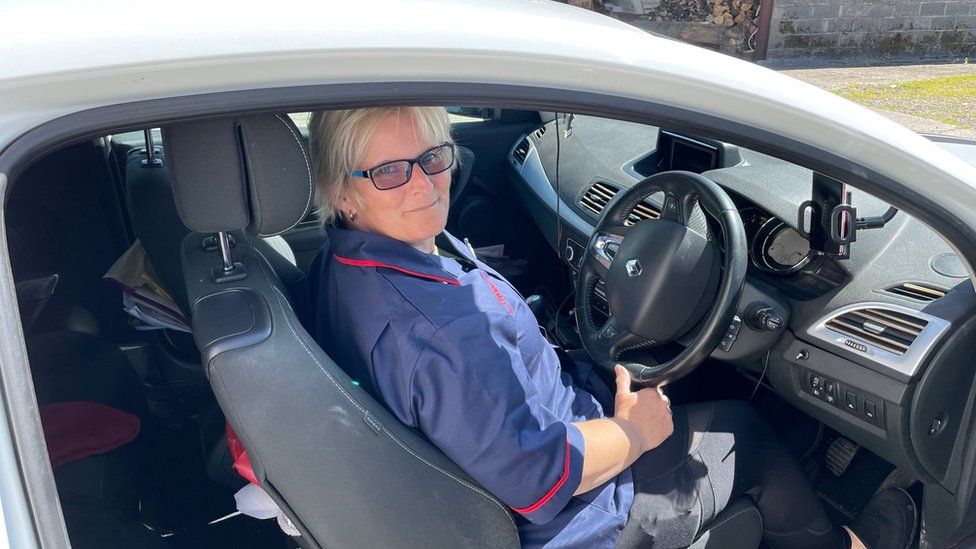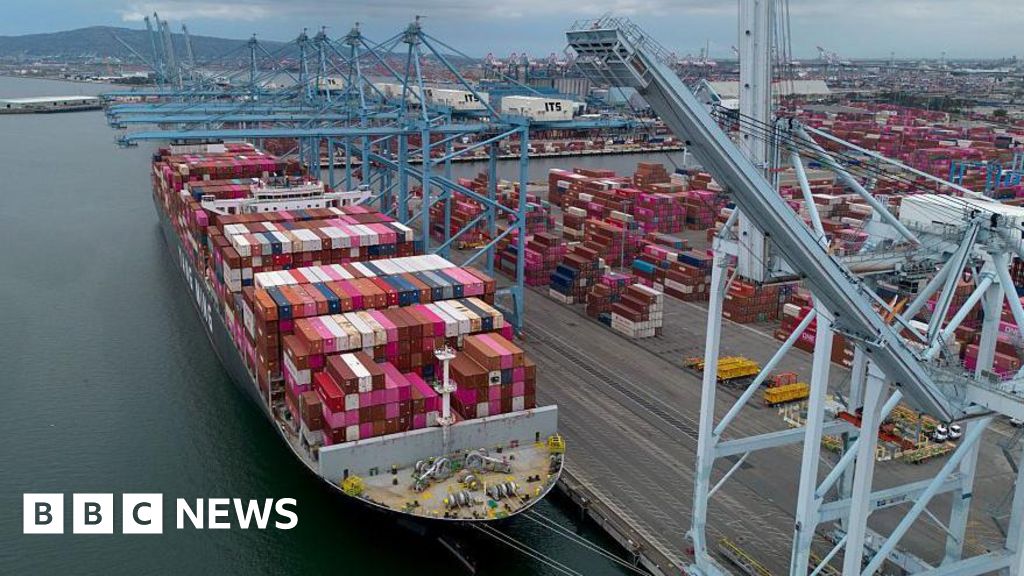ARTICLE AD BOX
By Gareth Lewis
BBC Wales Westminster Correspondent

Bethan Evans says she may give up her job as a carer if she does not receive extra help to cope with fuel costs
A carer from rural west Wales has said she is thinking about quitting her job because of the rising cost of fuel.
Bethan Evans from Gorsgorch near Llanybydder in Ceredigion regularly drives more than 600 miles a week visiting clients in their own homes across a large swathe of west Wales.
"My car was £80 to fill up from empty in January and now it is costing me £140-£150," Mrs Evans said.
She has urged the UK government to step in and help.
The prospect of carers leaving the profession has prompted calls from a Welsh MP for rural fuel duty relief to be extended to parts of Wales.
The scheme, which knocks another 5p off fuel duty compared to the norm, applies only to remote parts of Scotland, the Isles of Scilly and a handful of rural areas in England. It is based largely on increased costs of fuel transportation because of the distance from refinery to forecourt.
"Our clients need us," says carer Bethan Evans
Mrs Evans is supporting calls for rural fuel duty relief to be extended to parts of Wales, and for a wider cut in fuel duty and VAT on fuel.
"Help us out. Help the people who are looking after people and doing essential work. Give us help," she said.
She also suggested that the UK government should consider something like a fuel discount card for care workers.
The Treasury has been asked to comment.
Mrs Evans's patch covers locations including Aberystwyth and Tregaron.
She faces a 20-mile round trip to her nearest petrol station and says she "will have to really think about giving up the job" if prices keep rising and no extra help is given.
"I do not usually let my car go much below half a tank and I might fill it up twice, so that's over £120 a week just to do my job," she said.
She said her weekly average earnings were about £450, which includes travelling time and mileage allowance.
Mrs Evans added that a professional and moral responsibility kept her going.
"If I did not enjoy it, I would not be doing it. Our clients need us for their everyday life to carry on, and if we did not do it then who would? "
"When they get released from hospital it is us they come to. But if we are not there they will be stuck in hospital and there'll be a bigger backlog than there already is," she said.
Ben Lake, Plaid Cymru MP for Ceredigion, will meet Exchequer Secretary Helen Whatley next week after raising the issue in Prime Minister's Questions and being promised a meeting with the Treasury by Boris Johnson.
'Hell of a difference'
Mr Lake would like the rural fuel duty relief scheme to take account not just of fuel transportation costs, but also the road network in parts of Wales, the distances people have to drive and the lack of public transport alternatives.
"Rural areas of Wales are currently not eligible despite meeting almost all of the criteria. The one thing we lose out on is proximity to the refinery, but as anyone who lives in rural Wales or mid Wales will know that does not make much of a difference due to the road network that we have," he said.
"If we were to change this it would mean roughly another 5p cut to fuel at the pumps, which would make a hell of a difference to workers in rural Wales."
There is currently one refinery in Wales at Pembroke and another just over the border at Ellesmere Port in Cheshire.
Another Welsh MP - Labour's Tonia Antoniazzi - is calling for a 40% cut in both fuel duty and VAT on fuel for two years. It follows a petition submitted to Parliament signed by more than 100,000 people.

 3 years ago
54
3 years ago
54









 English (US) ·
English (US) ·